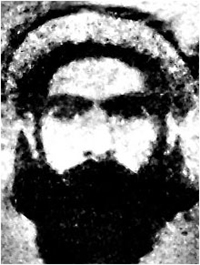Taliban leader mourns al-Zarqawi death, vows to continue war
Omar was "deeply sad over the martyrdom of Abu Masab al-Zarqawi" but his death would not weaken the resistance in Iraq, "as it is the people's resistance and every youth can become al-Zarqawi," the Pashto-language statement said.

The authenticity of the statement could not be confirmed. It was forwarded to an Associated Press reporter in Pakistan by e-mail from Dr. Mohammed Hanif, who claims to speak on behalf of the Taliban. His exact ties to the hardline militia's leadership is unclear.
The e-mail included a scanned copy of the original statement, purportedly signed by Omar.
The reclusive Omar has been at large since the ouster of the Taliban regime in late 2001 by U.S.-led forces for hosting al-Qaida leader Osama bin Laden, and is thought to be hiding in southern Afghanistan or in the rugged Pakistan-Afghan border region.
Al-Zarqawi is believed to have come to Afghanistan in 1999, where he formed links with bin Laden. He fled during the U.S.-led war that ousted the Taliban, passing through Iran to Iraq.
On Thursday, Afghan President Hamid Karzai said al-Zarqawi's death in a U.S. airstrike in Iraq was "a significant step in ridding the world of the menace of terrorism" and accused him and al-Qaida of killing thousands in Iraq and Afghanistan.
More than four years after the Taliban's ouster, Afghanistan is still fighting its own war against al-Qaida and its Taliban allies. Afghanistan has faced a massive increase in violence in recent months, especially from suicide bombings - a new tactic in the country.
Subscribe to Pravda.Ru Telegram channel, Facebook, RSS!





